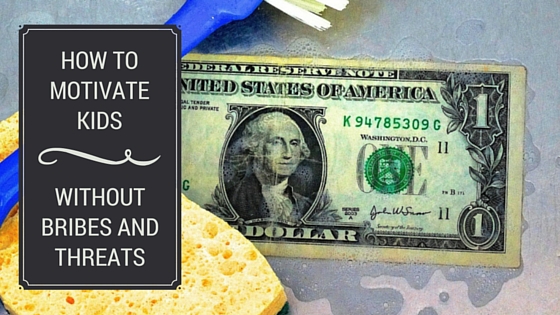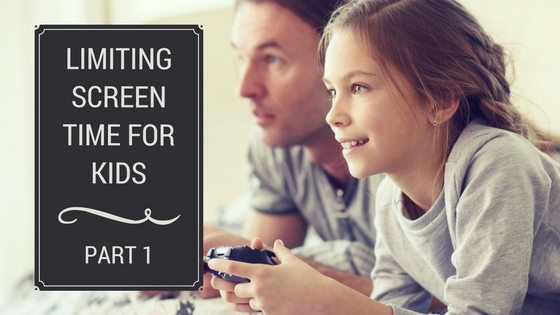As part of our “Ask Us Anything” series – we got this email recently:
Dear Cecilia and Jason,
I have a 5-year-old child who needs to take medication twice daily. It's serious, life or death medication…and she seriously doesn't want to take it.
We have done pill training. We have tried to make it fun. We have covered it all in melted chocolate and tried a lot of different things.
I take my 6 vitamins and supplements while sitting with her so that she doesn't feel like she's the only one in the family who has to take stuff.
She can take it with water, juice, pudding, chocolate milk, or whatever she wants, as long as she takes it.
The problem is that, even though she knows how to swallow pills, she just doesn't want to do it.
We have explained to her the gravity of the situation, told her stories about what happens to the people with her condition who don't take the medication and held family meetings explaining the problem and asking for solutions.
It takes her anywhere between 30-60 minutes twice per day to take the meds – there is lots of screwing around, complaining, and getting everyone around her to bend over backward.
Everyone is fed up with the antics.
We don't ever do bribes for anything else with our parenting, but recently I have had a small success with offering ‘special mommy time' or chocolate after her meds have been taken.
We have all made a valiant effort and tried empathy and being compassionate for her situation, but after a couple of months of this it has come to the point that nobody in the family wants to sit with her for one to two hours each day while she stares at the medicine getting herself all worked up about how horrible it's going to be to swallow it.
Thanks for any advice you can offer.
Brigitte (not her real name)
Dear Brigitte,
This sounds like a really difficult situation. You, your daughter and family have tried just about everything that you can think of to make taking medicine more fun. Despite your valiant efforts, things are just not working.
Small print disclaimer, written as large print: We have some ideas but keep in mind that we are just a couple of folks who have some ideas about living with and loving kids, we are not physicians and nor can we give medical advice.
Since we don’t know your family and all the details of your relationships we are going to do our best to guess at a few things in the following suggestions. Take our advice with a grain of salt.
Here are our thoughts:
- Identify the need: It sounds like your daughter is “stuck in a rut”. Just like a wagon wheel that can’t get out of the deep grooves, your daughter is behaving in a certain way—taking 1-2 hours to take her medicine—because it meets some type of need for her. We can’t say exactly what that need would be, but we’d bet that between the two of you in a conversation (more on that in #2) you could figure out WHY she’s doing what she’s doing.Maybe she enjoys the connection, attention, or autonomy (power and independence) that she feels during the “pill taking time”. If you (and she) can identify the underlying need she’s having, then you can both work together to help her “wagon wheel make some new grooves”. Getting out of this rut is not just to help one of you; it’s to make things better for both of you.
- Have a lighthearted, connecting conversation: Talk to her—NOT during the “pill taking time”—about what is happening.Here is an idea of how it could sound, “Jill, there is something I just can’t figure out and I’ve been thinking about it for weeks. The more I think about it, the less it makes sense, but maybe you can help me. Here’s what I know about you: you are a kid who loves roller skating, playing with Legos and your stuffed animals and yet every day it takes you a whole hour, sometimes two, to take your medicine. I can’t figure out why it takes you so long to do it when you could be doing so many other things that are actually fun. Can you help me understand?”And then just listen to what she says. Ask questions, if you need to, and see if you can get an even deeper sense of what is happening for her during this time. Say things like “Oh,” “That makes sense to me,” “Aaah,” “Your perspective is important to me.” In this conversation, you’ll get great insight into what her unmet need is.
- Know that her “pill swallowing time” probably isn’t actually working for her either: We don’t know your daughter, but we know 5 year olds. “Giving up” 2-4 hours per day to take medicine means giving up play time, reading book time, running around and jumping on the trampoline time.If she’s like other kids we’ve known, dragging out “pill swallowing time”—while it appears to work for her on the surface—can’t really be working to meet her needs in a deeply satisfying way.Concentrating her attention on how to truly meet her own needs could be enough to keep her interested in and motivated to make a change. You might not even need to address the medical importance of taking the medicine or the impact that she’s having on you or the rest of the family when it takes 2 hours to get her to do it.
- Come up with a plan: After you’ve identified the unmet need that she has, and you’ve really heard about what is happening for her, come up with a plan about how things could go differently. Again, have this conversation not during the “pill time”.Does she need to do something to get her ready for taking her medicine? When/where/how/with what foods is she going to swallow her pills?And most importantly…What is her plan for the FUN thing that she gets to look forward to after she’s done? Just because she gets to do something fun after taking her medicine doesn’t necessarily mean she’s receiving a bribe or a reward. It’s human nature to enjoy looking forward to things and to celebrate our successes. It’s great for her to have something to look forward to.If your daughter suggests something that doesn’t work for you, it’s okay for you to speak up for your own needs/values. “I understand that you’d like to eat 100 candies after you swallow your pills, and I might even be crazy enough to let you if I thought it would make you take your medicine more quickly, except that your body needs energy from food, not from sugary candy. What other ideas do you have?”
- Review/revise the plan afterward: Talk about what worked, what didn’t work, and what she’d like to do differently next time. If you both get stuck, reach out to other people—family, friends, her doctor, support groups, other kids who take medicine, whomever, to get more ideas. This could be a process of trial and error, especially as your daughter is creating “new grooves with her wagon wheels”.
- To the extent possible, keep things light between you and your daughter: This might seem like a counterintuitive piece of advice. “Really??”, you say, “it’s a life or death situation if she doesn’t take this medicine and you’re saying for me to keep things LIGHT??”Yup, that’s what we are saying. Because if you’re typical parents like us, we often get really serious about serious (and not-so-serious) things—just ask our kids. Once we lighten up on ourselves and on our kids, it opens the doors for the magic and miracles to happen. When we lighten up, the rainbows and unicorns decide to show up in our lives.Brigitte, you’ve already tried making things fun but if you want more ideas Playful Parenting by Laurence Cohen could be a great place to start.
Sometimes when our kids were young they didn’t want to wear seatbelts. We’d let them choose the music in the car after they buckled up. They already knew this was the plan “buckle up, choose music”, so before they even got to the car in the morning we would say, “Oh no. I hope that you don’t want to listen to the Mary Poppins soundtrack again. [grin and wink] I am so sick and tired of hearing that. Whatever you do please, please promise me that you will not choose Mary Poppins….” [heavy on the sarcasm]
Yes, our kids still had to put on their seat belts. But they did it with giggles knowing that, for as much as they felt powerless about the seatbelts, they could be powerful by “imposing” Mary Poppins music on us. It became a recurring family joke.
May you also create some magic and miracles in your family.
Warmly,
Cecilia and Jason Hilkey
P.S. “No, choose anything, anything but the Mary Poppins music. Please, nooo!!” [wink, wink, nudge, nudge]
“Just a spoonful of sugar helps the…”










This is a brilliant and very helpful response. Thank you for sharing.
Thanks! Hopefully it can make the joy of parenting more joyful!